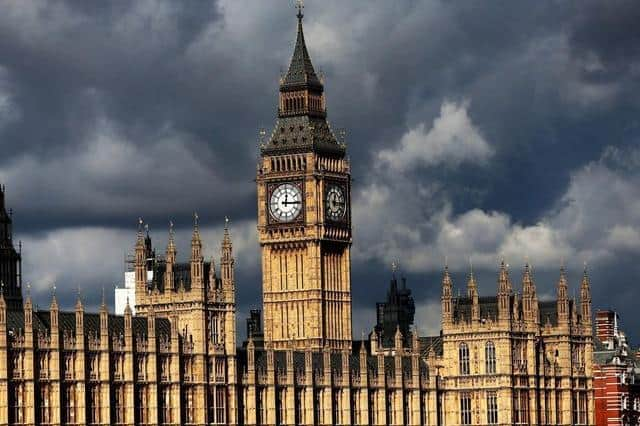How the UK's digital roll-out has become mired in complex rules - Greg Wright
But the Electronic Communications Code (ECC), which aims to help tackle this problem, has proved to be a source of contention.
Richard Willcox, real estate principal associate at Shoosmiths, warns that the code has become a complex and contentious piece of legislation, with lawyers having to navigate an impasse between landowners and operators.
Advertisement
Hide AdAdvertisement
Hide Ad“The code was subject to a re-write at the end of 2017,” said Mr Willcox. “The key change was how rents were calculated on land or property that could host digital communications infrastructure.”


The change involved moving from an ‘open-market’ approach to a ‘no scheme’ valuation model, Mr Willcox said. The new model calculates rents by assessing the value land or property would have to the owner if it had an alternative use.
Mr Willcox said: “This is a marked shift from the open-market approach, which was aligned to its potential value to the operator. The objective behind this shift was to reduce rents payable by operators, freeing up capital to invest in the faster development and roll out of digital communications infrastructure.
“While adopting the no scheme valuation model has seen rents – and the income stream for many landowners – slashed, ironically this is now considered a key factor inhibiting the rollout of new infrastructure, with lower rents reducing the landowner incentive for voluntarily hosting sites and entering into consensual deals with operators.”


Advertisement
Hide AdAdvertisement
Hide AdAs a result, operators are now having to regularly resort to a costly “quasi-compulsory” purchase process in order to acquire new sites and overcome the lack of engagement from landowners. There appears to be no simple solution to the challenges facing operators and landowners, Mr Willcox said.
He added: “The Government issued a consultation paper in January 2021, identifying what it considers to be log-jams within the code and setting out headline proposals for overcoming them. There was, however, no move to re-visit the code’s valuation principles.”
A Department for Digital, Culture, Media & Sport spokesperson said: “Our priority is rolling out better mobile coverage as quickly as possible.
“The pricing for the right to install telecoms kit is now more closely aligned to the regime for other utilities like water, electricity and gas, and we think that is the correct position. We want to see fair terms agreed quickly between landowners and mobile operators and we are creating new laws to put extra responsibilities on telecoms firms and landowners to encourage fairer, faster and more collaborative negotiations.”
Advertisement
Hide AdAdvertisement
Hide AdLeeds City Council will be paid rent of £28,500, down from £187,027 for fourteen sites used for telecoms infrastructure following negotiations with MBNL.
MBNL is the infrastructure provider, jointly owned by EE and Three and managed this negotiation. This reduction is due to changes in the ECC.
A spokesperson for Leeds City Council said: “The recent changes to the ECC carried out by the Government will have impacted all local authorities with lease agreements for telecoms infrastructure situated on their property assets, including Leeds
“This is part of wider work to ensure UK telecoms infrastructure can meet growing demands. However, the recent changes to the ECC have consequently reduced income achievable by Leeds City Council upon the renewal of lease agreements with telecommunications providers.
Advertisement
Hide AdAdvertisement
Hide Ad“Any loss of income will clearly have an impact on the ability of the council to set sustainable spending plans.”
An EE spokesperson said: “Our primary focus is to continue providing critical national infrastructure to keep our customers and businesses connected.
“Digital communications offer opportunities for communities and councils to deliver public services in new and better ways.”
Any move to boost digital communications must be applauded. However, the ECC has posed challenges which are taxing some of our finest legal minds.
